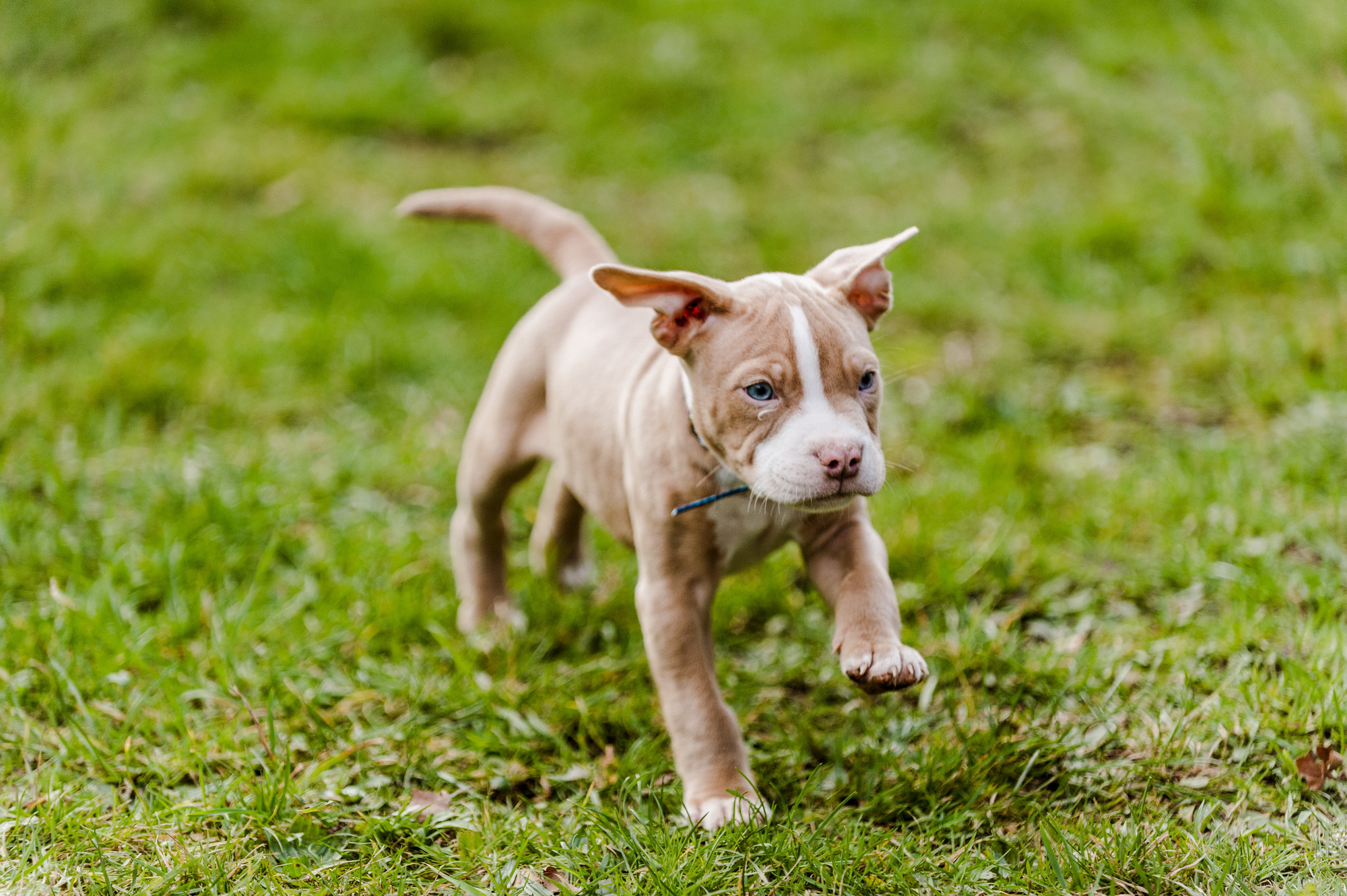
Dog recall training
Teaching your puppy to come back when called is possibly the most important lesson that they need to know.
It's important that you start as early as possible to give them the best head start. If your puppy hasn't yet had their vaccinations, then you can start by practising in the garden or in your own home.
How to train your dog to come back to you
Step one: Decide your recall cue
Decide what your recall cue will be. This is entirely up to you, it could be ‘come’, ‘here’ or you could use a whistle – the main thing is to keep it the same.
Step two: Recall rewards
Now you need to create a really strong positive association between the word or sound of your cue and some amazing rewards!
This could be:
- food
- your attention
- toys
But to start the training it’s easier to begin with tasty treats. Prepare lots of tasty titbits for your training - tiny cubes of cheese, ham, sausage or chicken are usually best.
Step three: Attract your puppy's attention
Begin when you are very near your puppy and there are no distractions.
Say their name
Say their name, followed by your chosen cue. If you are very enthusiastic and upbeat, with your body language open and inviting, this should be enough to attract you puppy’s attention.
Praise
When they come up to you, praise them well, hold their collar gently, and give them a tasty titbit. The reason it’s a good idea to hold your puppy’s collar is that you will have to do this frequently when you recall your dog (if you are attaching their lead, holding them as a jogger passes by and on on) – so it makes sense to include this as part of the sequence.
Repeat
Do this frequently throughout the day - soon your puppy will associate the sound of their recall cue with tasty food.
Change location and add distractions
Gradually extend your training to other areas of the house and when your puppy is further away from you.
Add in minor distractions if your training is going well, for example ask them to come when they are sniffing something interesting in the home or garden.
Step four: Vary the rewards
When your training is going well with food, begin to vary the rewards – sometimes have an exciting game with your puppy, and other times give bits of food one after the other. For puppies that really enjoy physical contact and praise, give them that too.
The idea is to make your puppy feel that they can’t wait to get to you when they hear their recall cue as something very enjoyable will happen! Don’t forget to hold their collar gently before rewarding them.
Step five: Test out the training on walks
Once you have a reliable recall in the home and garden, you can begin to take your training out on walks while keeping them on the lead. Start in quiet areas at first, building up to small distractions when your puppy is ready.
You can give your puppy a little more freedom to explore and add distance between them and you using a longer lead or training line to practice the recall. But only use these pieces of equipment well away from roads and make sure your puppy is wearing a harness if you use anything longer than a walking lead, as they may injure their necks otherwise.
Helpful tips
When training outside, always use your recall wisely
Unless it is unsafe, try to avoid calling your puppy away from activities that are either essential or enjoyable (such as sniffing, exploring or playing with other dogs). Although it will be great practice eventually, these things will be hard for a young enthusiastic puppy to come away from, especially when they have only started the training.
Avoid calling continuously
Avoid calling your puppy more than twice. If your puppy does not come back to you, it is an indication that more training is needed. To do this, just go back to the point at which your puppy was coming back to you reliably.
Don't tell them off
Avoid telling your puppy off if they don’t come back quickly enough or you have to ‘collect’ them from whatever they are up to – this will only make your puppy avoid approaching you in the future. Simply go back to basics to refresh your training.
Will I always have to reward my dog with treats?
Once you have a great recall, you won’t have to reward your puppy with food or play every time. But, to keep their response to you sharp, make sure you give them something extra special some of the time (a handful of their favourite treats or an exciting game). Always let them know you are pleased they have come back to you with praise.




